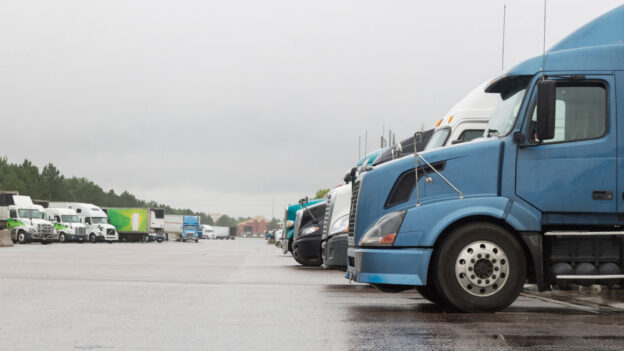Introduction
If you’re in the freight business, then you’ve definitely heard of rate confirmations. But what are they, exactly? A rate confirmation is a document that spells out the agreed-upon shipping rates between two parties. It’s essentially a contract that ensures both sides are on the same page when it comes to pricing. And if you’re looking for a way to protect yourself from unexpected price hikes, then a rate confirmation is definitely something worth considering. In this post, we’ll break down everything you need to know about rate confirmations, including what they are, how they work, and why you might need one.
What is a Rate Confirmation?
Rate confirmation is defined as a formal document that is issued by a carrier to a shipper or their agent, which outlines the charges for shipping goods. The rate confirmation will detail the specific commodities being shipped, the origin and destination of the shipment, the date range of the shipment, and the applicable rates.
A rate confirmation is important because it provides clarity on the charges that will be incurred for a shipment. This document can help to avoid misunderstandings and disputes between the parties involved in the shipment. In some cases, a rate confirmation may also be used as evidence in a legal dispute.
What is a Freight Contract?
A freight contract is an agreement between a shipper and a carrier that outlines the terms and conditions of transportation services. The contract will spell out the responsibilities of each party, the type of service to be provided, the shipping rate, and any other relevant details. A freight contract can be used for both international and domestic shipments.
Why Use a Freight Contract?
A freight contract provides clarity and peace of mind for both the shipper and the carrier. By having all of the details laid out in a written agreement, both parties know what to expect and can avoid any misunderstandings. A freight contract can also help to protect both parties in the event of a dispute.
Why is Rate Confirmation Important?
A rate confirmation is a key component in any freight contract. It is a document that includes all the agreed-upon rates for shipping services, and is signed by both the shipper and carrier. The purpose of the rate confirmation is to provide a clear understanding of the terms of the contract, and act as a guard against future misunderstandings.
Without a rate confirmation, the carrier could change the rates at any time, which would put the shipper at a disadvantage. The rate confirmation protects the shipper by ensuring that the agreed-upon rates are set in stone.
A rate confirmation is also important because it can be used as evidence in the event of a dispute. If there is ever a disagreement about rates, the rate confirmation can be used to prove what was agreed upon.
Another importance of a rate confirmation is that it can help to build trust between the shipper and carrier. By having a signed document that outlines the rates, it shows that both parties are committed to the contract and are serious about doing business together.
What Does Rate Confirmation Entail?
In its most basic form, a rate confirmation is simply a document that confirms the price of shipping services contracted between a shipper and carrier. This type of confirmation is important to both the driver and the shipper for a number of reasons. The rate confirmation contains the following details:
-The name of the shipper
-The name of the carrier
-The origin and destination of the shipment
-The type of commodity being shipped
-The shipping date
-The total cost of the shipment.
-Importance of Rate Confirmation To a Driver
The driver is the one who will be performing the shipping services, and as such, it’s crucial for them to have a confirmation of the price they will be paid for those services. This confirmation allows the driver to know the amount of payment due, and gives them a point of reference if there are any discrepancies. The following are the importance of rate confirmation to the driver.
Ensures that the driver will be paid the agreed-upon amount: Perhaps the most important reason for a driver to have a rate confirmation is that it ensures they will be paid the amount they were originally quoted. If there are any discrepancies between the amount on the rate confirmation and the amount the driver is actually paid, they can refer back to the document to make sure they receive the full amount they are entitled to.
Gives the driver a point of reference: Another important reason for a driver to have a rate confirmation is that it gives them a point of reference. If there are any questions or discrepancies regarding the job, the driver can refer back to the rate confirmation to help resolve any issues.
Importance of Rate Confirmation To a Shipper
The shipper is the one who is contracting the shipping services, and as such, it is important for them to have a confirmation of the price they will be paying for those services. This confirmation allows the shipper to know exactly how much they will be paying for the job, and gives them a point of reference if there are any discrepancies. The following are the importance of rate confirmation to the shipper.
Ensures that the shipper will pay the agreed-upon amount: Perhaps the most important reason for a shipper to have a rate confirmation is that it ensures they will pay the amount they originally quoted. If there are any discrepancies between the amount on the rate confirmation and the amount the shipper is actually charged, they can refer back to the document to make sure they are not overcharged.
Conclusion
We hope this article has helped you learn more about rate confirmation and the important role it plays in freight contracts. At its core, rate confirmation is a way to protect both the driver and owner by ensuring that the correct price has been agreed upon for the delivery of goods. At Advanced Commercial Capital, we are experts in factoring and can provide your business with the cash flow it needs to succeed. Contact us today to learn more about our services and how we can help your business grow.











